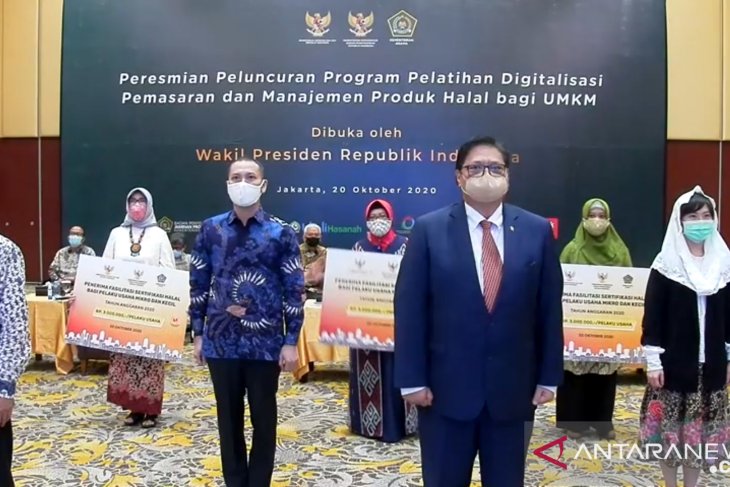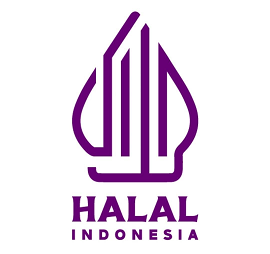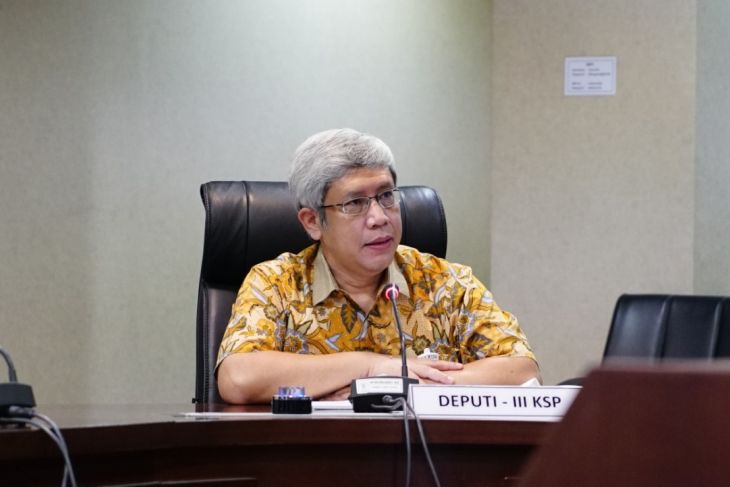ANTARA NEWS
Screen capture of Coordinating Minister for Economic Affairs Airlangga Hartarto (second right) at the launch of the digitalization program for MSME halal products’ marketing and management in Jakarta, Tuesday (20/10/2020). ANTARA/Dewa Wiguna/ac.
“The program is open to the public and can be held on a large scale in future,” Coordinating Minister for Economic Affairs Airlangga Hartarto stated during a virtual launch of the digitalization program for marketing and management of MSME halal products in Jakarta on Tuesday.
The government involves four sharia-based digital partners — LinkAja Syariah, Tokopedia Salam, Blibli Hasanah, and Bukalapak — in the program scheduled to be held from October to December 2020.
Hartarto noted that after participating in the training program, participants, deemed to have met the qualifications, will receive halal certification and be directed to access coaching services in the regional MSME integrated business service center.
The first stage of training prioritized groups of ministries and agencies as well as community organizations, he expounded.
Furthermore, Minister of Cooperatives and SME, Teten Masduki, stated that the program will be followed by a thousand MSME businesses.
Coordinating Minister Hartarto drew attention to the tremendous pressure exerted by the COVID-19 pandemic on MSMEs that resulted in decreased sales and layoffs, thereby leading to difficulties in the repayment of loans.
On the other hand, the minister pointed to the pandemic having brought about an indirect change in consumer behavior in the way they shop, with the current switch to online transactions through digital platforms.
However, business transformation through the utilization of digital technology cannot be optimally conducted right away by MSME players.
“They are constrained by problems of product quality, production capacity, and digital literacy that had yet to be mastered,” Hartarto stated.
Meanwhile, the minister pointed to rapid developments in the halal lifestyle in the last two decades.
Quoting the State of Global Islamic Economy data for the 2019-2020 period, the coordinating minister highlighted an increase in the spending of Muslims, recorded at US$2.2 trillion in 2018, and is projected to reach $3.2 trillion by 2024.
“However, the increase is also influenced by Indonesia’s high imports of halal products, and this should be followed by enhanced domestic production capabilities, so that MSME products can penetrate the global market,” Hartarto noted.




